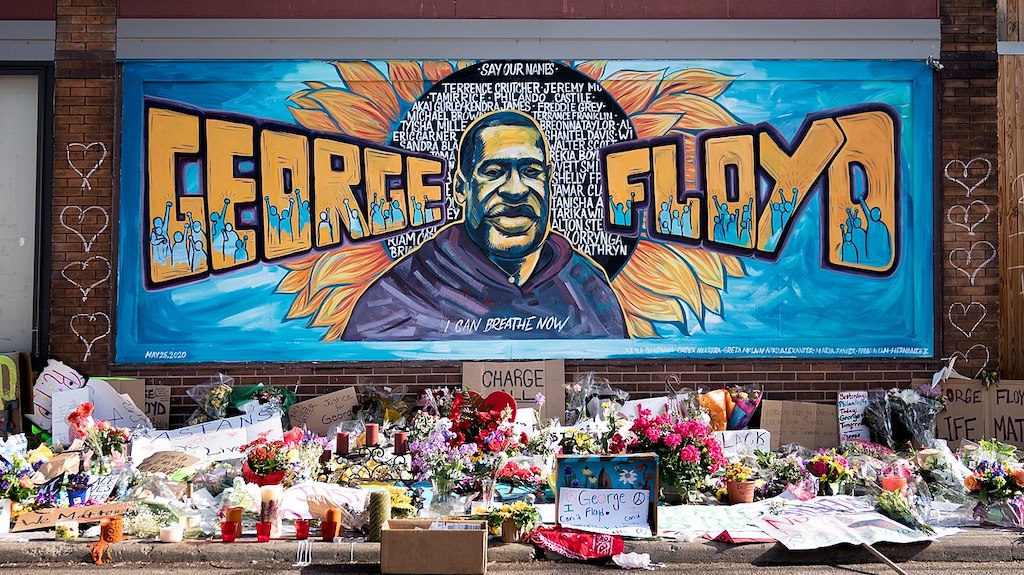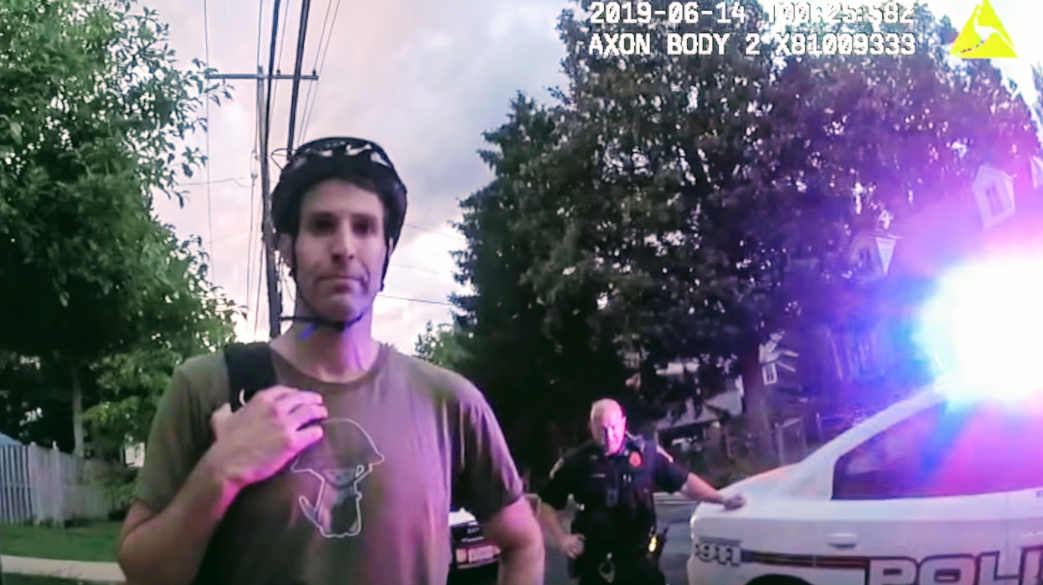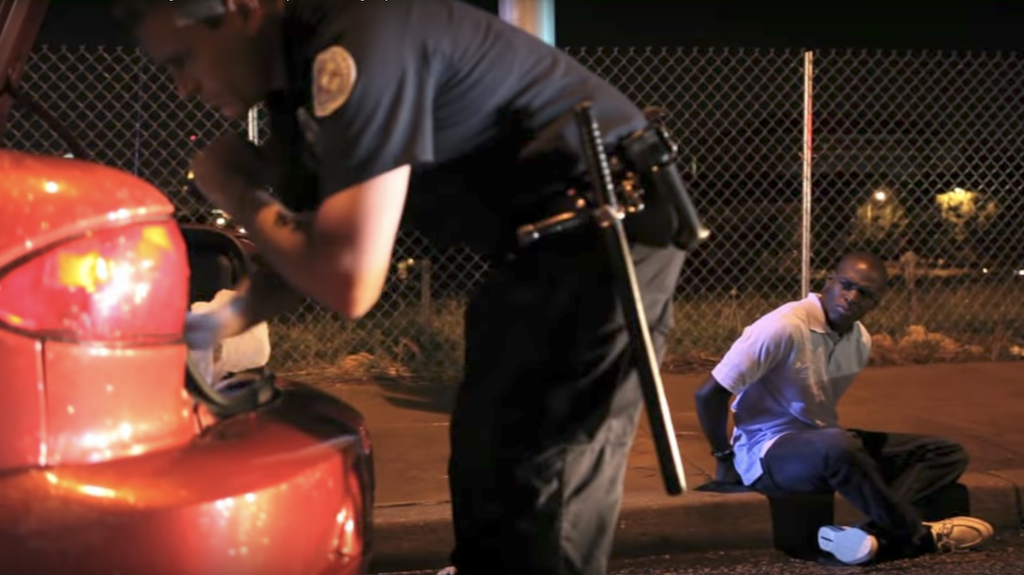This video depicting Sgt. James Kuehnlein terrorizing a young motorist has erupted on the internet, shocking the nation, and providing a poignant reminder that police lunacy is alive and well in the USA.
Questions About Your Rights?
Blog
Videotaping Police Should Never Be a Crime
Radley Balko, one of our favorite fellow constitutional fetishists, has an informative FoxNews.com piece on the legality of videotaping police encounters. For those of you who are unsatiated by our FAQ about videotaping police, this should hit the spot.
I wonder: Aside from law-breaking officers, who benefits from laws prohibiting the videotaping of police officers?
Blog
Supreme Court Victory: Passengers Have Rights Too
On Monday, the U.S. Supreme Court stood up for the 4th Amendment with a forceful unanimous ruling in Brendlin v. California:
Blog
Don’t Get Nifonged
If anyone has any lingering doubts about why you need a lawyer if you’re under police investigation, check out this revealing video of Mike Nifong’s testimony before the North Carolina State Bar disciplinary committee.
For the video impaired, here’s the transcript:
Blog
Prosecutors: Not as Nice as You Thought
On Thursday, Scott and I attended a book discussion, signing and reception hosted by the Open Society Institute. The event featured Friend-of-Flex, Professor Angela J. Davis speaking about her new book, Arbitrary Justice: The Power of the American Prosecutor. In light of the Nifong imbroglio, the timing of her exposé is perfect.
… Continued
Blog
If You Like CSI: Miami, You’ll Love the Westwood College of Criminal Justice!
There’s something rather disturbing about TV ads for trade school criminal justice degrees. You may have seen them: “Call now to begin your exciting career in this growing industry! Help put the bad guys behind bars!”
Blog
Minorities Must be Criminals, Otherwise There Wouldn’t Be So Many of ‘Em in Prison
New DOJ data confirming that minorities receive harsher treatment than whites during traffic stops came as no surprise to us. Last week I discussed the study, warning that DOJ’s poor reporting could embolden racial profiling apologists, despite the obvious disparities revealed in the data. Unfortunately, I was right.
Profiling skeptic Steve Chapman now exploits DOJ’s report in a widely published editorial that’s as sloppy as it is wrong:
Why would black drivers be arrested more often? Maybe because African-Americans commit crimes at a far higher rate and are convicted of felonies at a far higher rate. In 2005, for instance, blacks were nearly seven times more likely to be in prison than whites.
This is textbook circular reasoning of the sort that will earn you an F in Philosophy 101. By Chapman’s logic, police could stop investigating white people entirely and we’d soon see that minorities commit 100% of all crimes.
By relying on the argument that increased searches of minorities are justified by their criminality, Chapman exposes his own unfamiliarity with the data he’s discussing. The previous DOJ report, released in 2005, addresses this issue directly:
Likelihood of search finding criminal evidence
Searches of black drivers or their vehicles were less likely to find criminal evidence (3.3%) than searches of white drivers (14.5%), and somewhat less likely than searches of Hispanic drivers
(13%).
This data comes straight from a report referenced by Chapman, yet he insists that “a motorist of felonious habits is also more likely to have illegal guns or drugs on board,” and “the average black driver is statistically more likely to be a criminal than the average white driver.”
The great irony here is that Chapman offers his made up statements about the heightened criminality of minorities while arguing that racial profiling doesn’t exist. His premise fundamentally endorses profiling and any officer who agrees with him is highly vulnerable to the exact behavior Chapman denies. It is really just priceless to find gratuitous racial stereotypes in an article about how the days of gratuitous racial stereotyping are behind us.
Blog
Racial Profiling: Another DOJ Cover-up?
A new report from the Justice Department’s Bureau of Justice Statistics (BJS) shows that black and Hispanic drivers are significantly more likely to be searched, arrested and subjected to the use of force than whites.
It was initially encouraging to see the DOJ release this year’s report without any shenanigans considering what happened last time:
The Justice Department intervened, insisting that BJS not publicize that nasty part about minority drivers being more likely to be searched, arrested, handcuffed, beaten, maced, or bitten by dogs.
A conflict emerged in the course of which BJS Director Lawrence A. Greenfeld was removed from his post. His attempt to provide the media with an unbiased summary of his agency’s findings was apparently too much for his superiors at the DOJ. Ultimately, no press release was sent out, and the study was unceremoniously posted in the bowels of the BJS website.
Perhaps it’s a sign of progress and lessons learned that DOJ declined to bury this year’s equally shocking findings. After all, covering up racial profiling is one way – however shameful and undignified – of admitting that it exists.
Yet, upon closer inspection, we find that this year’s BJS report omits the single most important piece of information contained in the previous report: hit-rate data showing whether minorities were more likely to be hiding contraband.
Likelihood of search finding criminal evidence
Searches of black drivers or their vehicles were less likely to find criminal evidence (3.3%) than searches of white drivers (14.5%), and somewhat less likely than searches of Hispanic drivers
(13%).
This revealing fact fundamentally undermines the sole premise from which police agencies and others have sought to defend ongoing racial disparities such as those revealed this week. Consider the following hypothetical (but really quite typical) debate with a racial profiling apologist:
RPA: There’s no such thing as racial profiling. Cops don’t even know the race of the driver until after they’ve made the stop.
Me: Who gets pulled over is only one part of the equation. The data show that minority drivers are more likely to be searched, arrested, and subjected to the use of force after being stopped…
RPA: Well, if that’s true it’s because those people committed more crimes.
Me: Actually, the data show that searches of white people are more likely to produce evidence of a crime.
RPA: Wow, you must have gotten straight A’s at the Al Sharpton Academy of Social Science.
Me: This data comes from the Department of Justice.
RPA: Hang on, I’m getting a call. Oh yeah, gotta take this. Good talk.
DOJ was able to provide a racial breakdown of hit-rates in its previous report (the one it buried) thus the omission of such information from this week’s report is highly conspicuous. And of course, DOJ’s previous attempts to cover up racial profiling data attest to the agency’s lack of candor and credibility on this issue.
The larger question then is why the Department of Justice seeks to downplay racial profiling in the first place. BJS reports primarily reflect the behavior of local law-enforcement agencies, not the feds. The only real embarrassment here for DOJ is its ongoing failure to provide adequate monitoring of police practices at the state level. An activist such as myself may be keenly aware of DOJ’s abdication of this responsibility, but I suspect that most people are not.
In any case, we’d be hard pressed to generate any further controversy surrounding cover-ups at the Department of Justice this season. Instead, let’s do our best to make sure everyone knows how to handle police encounters. No matter how thorough, a traffic stop report from the federal Bureau of Justice Statistics won’t save your ass on the New Jersey turnpike anyway.
Blog
4th Amendment Victories in State Courts
We’ve got some more required reading for all you “4th Amendment is dead” fools who keep farting on our freedom parade. I know, there’s no shortage of police, judges, and prosecutors who can’t find big enough boots to trample your rights with. Believe me, I know. But the law evolves over time, as does the behavior of our public servants. This month brought a couple examples of the ability of State Courts to set a high threshold of 4th Amendment protection for the citizens they serve.
… Continued
Blog
Alberto Gonzales Should Fire Himself
The revelation that Alberto Gonzales made false statements to Congress regarding the firing of 8 U.S. attorneys, among other things, provides further evidence of our theory that he is an enemy of democracy and the Constitution.
… Continued



